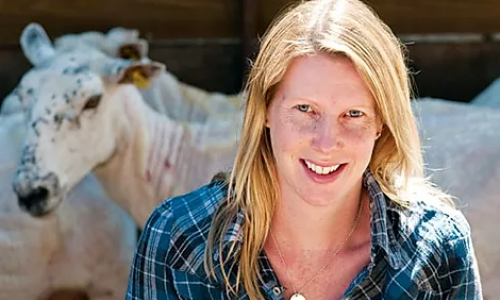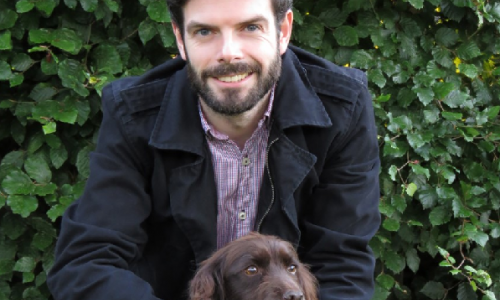Meet David: Managing Director, Paragon Veterinary Group, Cumbria
"Every production system can be more sustainable. We have a role to provide evidence-based advice on how to improve the health and wellbeing of animals and by doing so we need less therapeutic medicine and in particular fewer antibiotics."
David Black
Describe your current role and professional interests
I am Managing Director (MD) of Paragon, a three-centre mixed rural veterinary practice; MD of Activf-ET, a cattle advanced breeding business; and Executive Chairman of VetSalus, a global network of veterinary specialists who can provide expertise in all aspects of ‘One Health’ - especially animal production and sustainable farming. I am also Senior Independent Director of the VDS. From a clinical perspective, I was drawn through my early career in the direction of farm work with my main clinical interest becoming dairy practice and cattle reproduction. This has developed into R&D in advanced breeding technologies in cattle. My various roles involve supporting and mentoring colleagues as they develop their careers.
When did you know you wanted to work in the veterinary profession?
I am from a farming background and when I was about 11-years-old we were visiting a vet on Speyside called George Rafferty (of Hercules the Bear fame) and I saw him replacing a prolapsed uterus in a sheep which then jumped up apparently "cured". I was immediately fascinated and started spending time at the local practice in Keith where the staff supported and encouraged me and helped me get into vet school.
What is your favourite part of the job?
The great thing about being a vet is that there is no single favourite part...there are so many varied and exciting aspects to what we do.
I love being part of a like-minded team who are committed to being the best they can be, whether as a vet, nurse, technician or support; this reaches beyond Paragon to XLVets, VetSalus and VDS into other areas I am involved with.
I enjoy the daily challenges of running an independent business, of improving our efficiencies and effectiveness and of making Paragon a practice that people want to work for. Clinical success still excites and rewards me, and more recently I have come to appreciate good quality research, especially that which can be applied to make an industry difference and gives us an evidence base to work from.
What is the most challenging part of your job?
I don't know if anyone ever gets over the ups and downs of veterinary life - the successes can be very high, but the lows can be awful. Even now I feel these keenly, often on behalf of young colleagues who are striving so hard. And of course, communication in any business is a daily challenge, making sure that everyone who needs to know something receives the correct, clear information; this often requires an understanding of that individual or group, and tailoring the delivery content and style to achieve best effect.
Do you have any tips for achieving a good work-life balance?
I am not the best to answer this question! I have an amazingly supportive and understanding wife and family who have allowed me to indulge my passion for veterinary life and business. For me, it has been a vocation with no distinct line between work and life, but having said that we have always sought good-quality family time and great activity holidays - a sort of "work hard, play hard" approach! For me, having a really good team of people means that time away is much more relaxing now as I know the businesses are in safe hands! At Paragon we have started developing an "emergency only" WhatsApp group so that when colleagues are off work, they can truly switch off from the background noise of social media and communications with the assurance that there is a single point of contact should a really urgent and important issue arise.
How do veterinary professionals currently help to drive sustainability?
Since getting involved with VetSustain, I have been thinking more about this. I realise that we can have an impact in nearly everything we do - from waste recycling in the practice, the vehicles we drive, to the advice we give our clients. As practitioners, we work at the very intersection of human, animal and environmental health and as highly trusted professionals we can be advocates for sustainability - we already are when we are looking at optimising health and production of livestock, or selecting and breeding genetic traits that promote high health and welfare.
Even outside work in our communities, we have a role to play - for example, our valley has flooded several times and the community engages with landowners to "slow the flow" and promote catchment-wide water management.
What do you feel are the major opportunities to drive sustainability in the veterinary sector?
Every production system can be more sustainable. We have a role to provide evidence-based advice on how to improve the health and wellbeing of animals and by doing so we need less therapeutic medicine and in particular fewer antibiotics. Precision agriculture to me is about understanding the genome, the microbiome, the interactions between animals and their environment, and utilising data - ideally in real-time. Then using the latest technologies to ensure the efficiencies are maximised and the impact on the environment minimised.
What are your top tips for veterinary professionals wishing to take the first steps to drive sustainability in their roles?
I suspect, like me, most are already doing a lot, but we haven't really thought about it in sustainability terms. So we need to define what it means to us, learn more from each other, be open to ideas and suggestions and think about sustainability from every angle. We have introduced sustainability as an agenda point into our management meetings and that in itself means we are discussing it more and doing more about it. And part of the discussion has to be around the sustainability of our profession itself; so recruitment, development and retention of staff within our businesses.
If you could wave a magic wand and make one improvement to drive the sustainability impact of the veterinary profession, what would it be?
I would banish the binary debate about meat versus vegetables, especially for those in the livestock sector. In developed countries, we are more aware of the good evidence that we should eat less red meat, but the growing middle classes in developing countries aspire to eat more meat. There are many areas where livestock production is the only way of producing protein of any quality so let's accept that. Everyone has a right to choose their own diet, and we are on a journey of change that will not happen overnight. So let's use all the tools available to us, our trusted role within "One Health" and do all we can to promote healthy animals who have a life worth living. That is what we as vets have signed up to I believe.
Meet the people who embed sustainability into their life and work
From the veterinary nurses who advise on responsible antibiotic use and lead welfare campaigns, to the practice managers who actively reduce the environmental footprint of their workplace — we recognise the scale of your impact.



